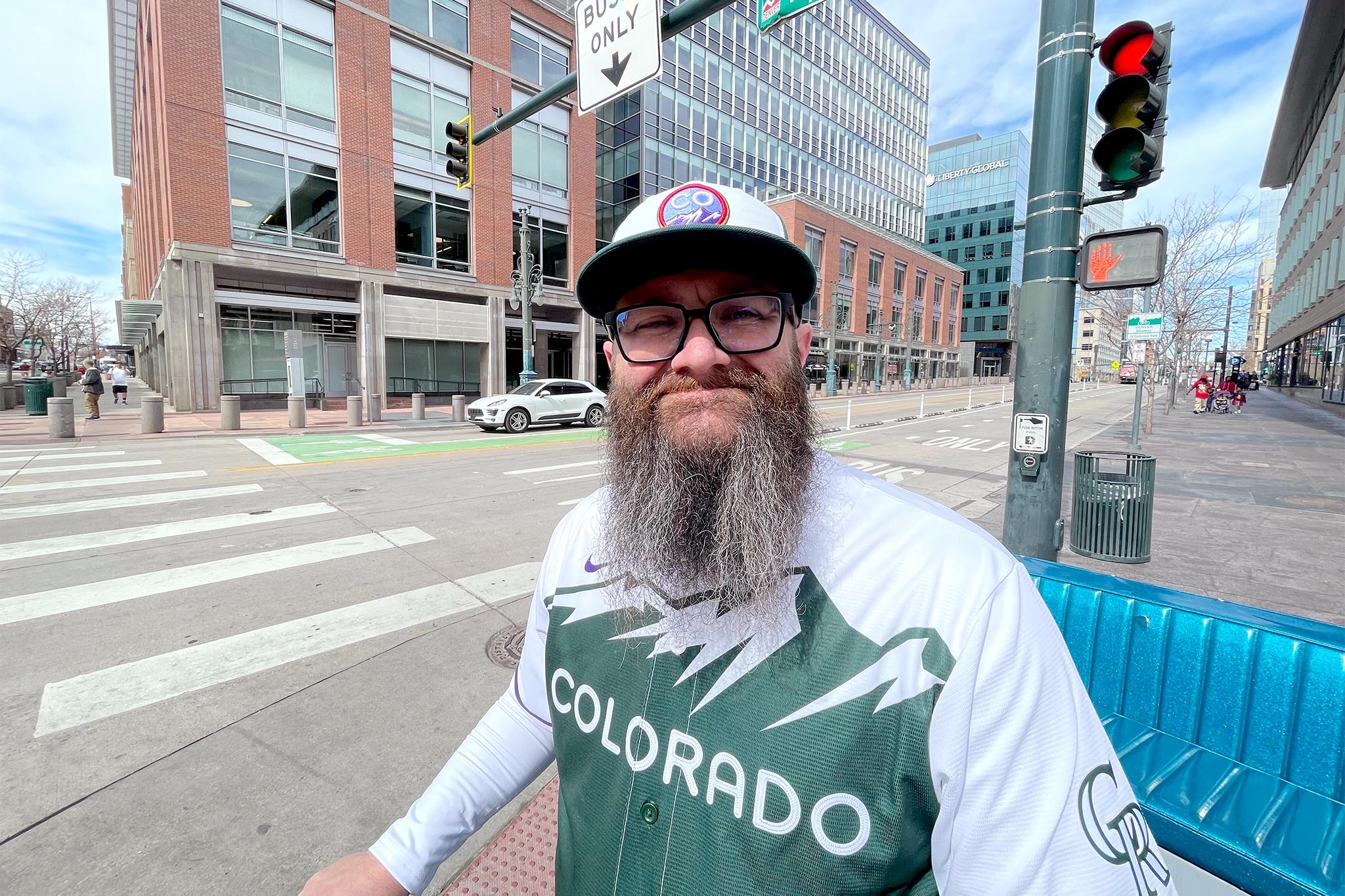Mark MacDonald drove from Aspen to rent a pedicab and cart visitors around downtown Denver on Rockies’ Opening Day.
“I’m not a fan of big cities,” MacDonald said, in his Texas drawl. But he needed money for rent and criminal justice classes, and he had plenty of people to pedal.
Denver saw 110,000 visitors flood into the Ballpark District — 20,000 more than the boosters at the Downtown Denver Partnership anticipated.
Even if Denver has too many people for his taste, MacDonald liked some of what he saw — especially the many police officers patrolling Union Station and McGregor Square.
“It looks like the law enforcement stuff has a pretty good tight grasp on keeping everything clean and organized for opening day,” he said. “But there’s still a lot of homeless. Still a lot of vagrants. A lot of people asking for money. Other than that, it’s a nice city.”
Michelle McCreery and Roberta Poirier come to the city center from Federal Heights in Arvada every year for Opening Day. Otherwise, they stay away.
“We avoid downtown,” said McCreery.
“It’s scary,” said Poirier.
What’s scary about it?
“Homeless people,” McCreery said.
“Immigrants,” added Poirier.

“We hear a lot of shootings or people hurting other people,” McCreery said.
They hear reports of the violence on Fox 31 and 9News.
“We don’t come at night,” McCreery said. “We avoid it at all costs. The only time I come downtown is for Rockies games.”
How did they feel about the city on Opening Day?
“It looks clean,” said Poirier.
“They did a lot of work to get it cleaned up — for today,” said McCreery.
Not all visitors got word from the news about how bad things are supposed to be — and some are having a pretty great time.
Josh and Kimberley Diaz, who moved to Castle Rock from Texas, have come to downtown to hang out with their kid.
For them, it’s a regular family destination.
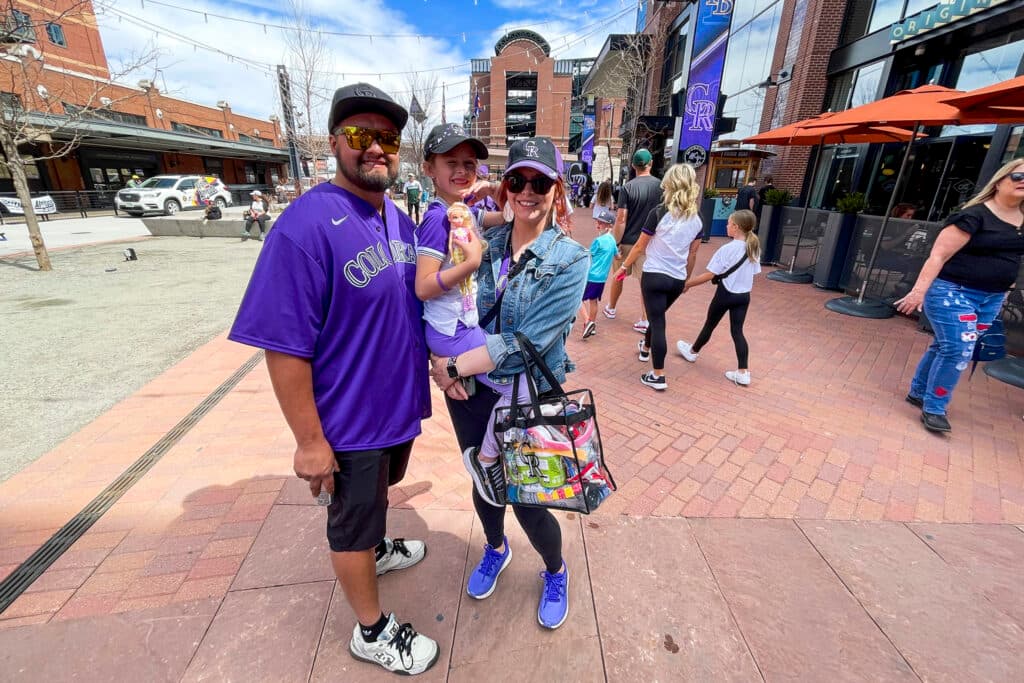
“There's just like a bunch to do here,” Kimberley said. “We love the aquarium and the zoo and all of that.”
There are parts of the city they would avoid, but to them, downtown isn’t one of those.
When family comes to visit, they’re proud to show off the city center.
Decked out in bike helmets and windbreakers, four cyclists from Evergreen walk through the plaza of Union Station.
Irene Egging, Lou Samson, Eric Erich and Bill Lester regularly pedal 15 miles from the Fox Hollow Golf Course to downtown Denver, said Samson.
They love how Union Station has become a social hub and enjoy getting coffee in McGregor Square. Sometimes they bike to Washington Park.
They used to frequent Larimer Square, but renovations on the 16th Street Mall and the lack of office workers have led to businesses closing.

“Larimer Square has gone downhill, which is a shame,” Samson said. “That used to be our stop.”
Despite the struggles caused by downtown construction, all four cyclists feel safe.
As for homelessness? They think the city is making progress in addressing the issue.
“We used to see some pretty big homeless camps along the river,” Samson said. “They're gone.”
And crime? If somebody were to threaten them, they wouldn’t be that concerned.
“Hopefully, we can ride faster than they can run,” Lester said.
Downtown residents who rallied for improvements during the pandemic say things are largely looking up.
Rob Squire is part of the Upper Downtown Neighborhood Association. He’s been a loud advocate for ending encampments. He’s impressed with Mayor Mike Johnston’s work on the issue.
Upper Downtown is 100% encampment-free, he said.
Squire tells Denverite things feel safer and healthier, both for downtown residents and unhoused people. Many who once lived on the streets are now indoors in other parts of the city.
Based on Denver Police data, violent crime is roughly where it was five years ago near Union Station and Coors Field. In all of downtown, there have been fewer violent crimes than in 2019. Meanwhile, such crime has risen citywide.
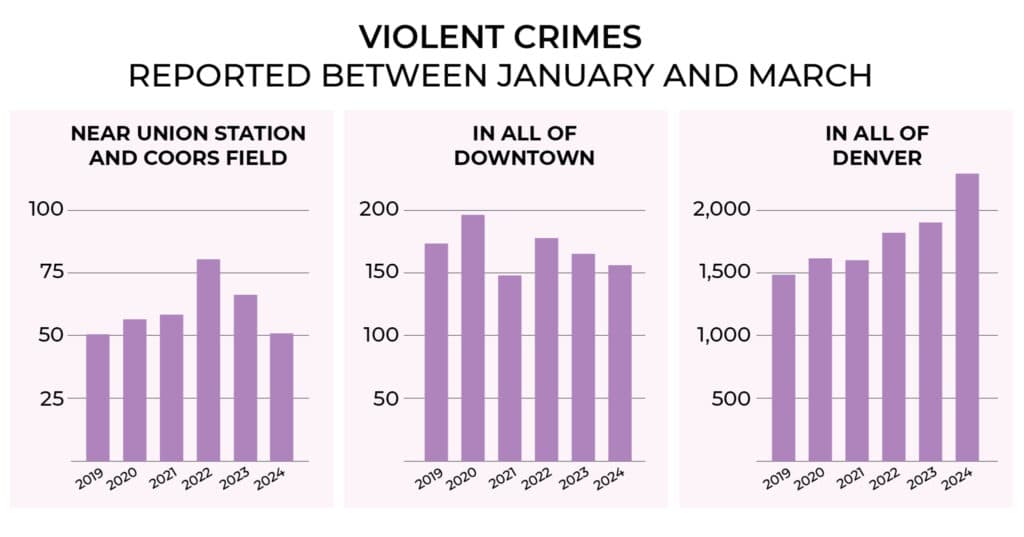
These days, the biggest impediment to Denver’s recovery isn’t homelessness or crime, Squire noted. It’s the construction on the 16th Street Mall.
“When that happens, I think Denver is going to return to being one of the — if not the — best downtown in the country,” Squire said.
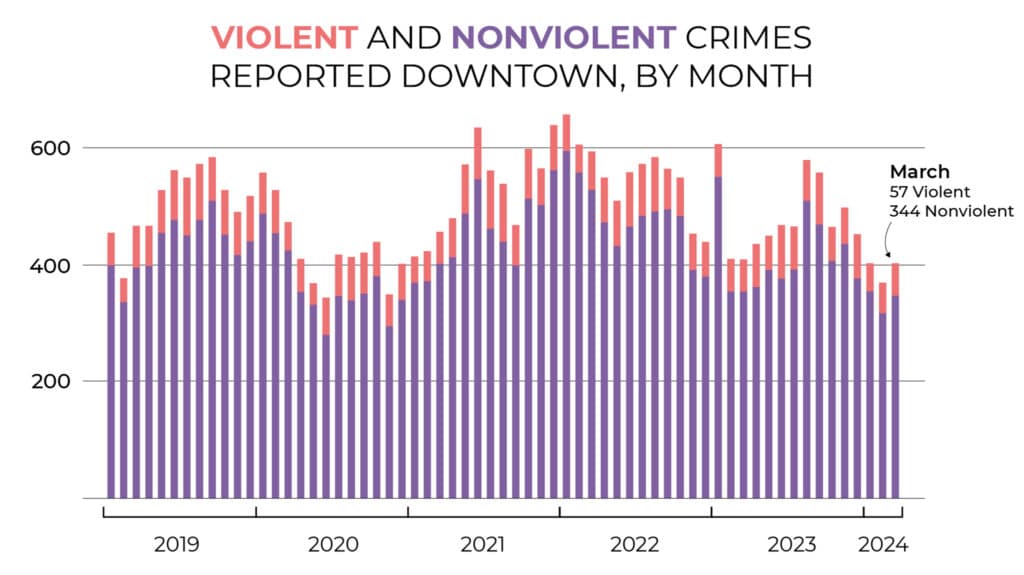
For tourists, the 16th Street Mall shutdown is a headache — but they say there’s still plenty to enjoy.
Melody Baker and Melissa Mulderrig, vacationers from Canada who live four hours outside Vancouver in wine country, aren’t in Denver for Opening Day. They came for Dom Dolla at Red Rocks, and they were thrilled to stumble into Opening Day festivities downtown.
“This reminds us a lot of Calgary, but nicer,” said Baker of downtown.
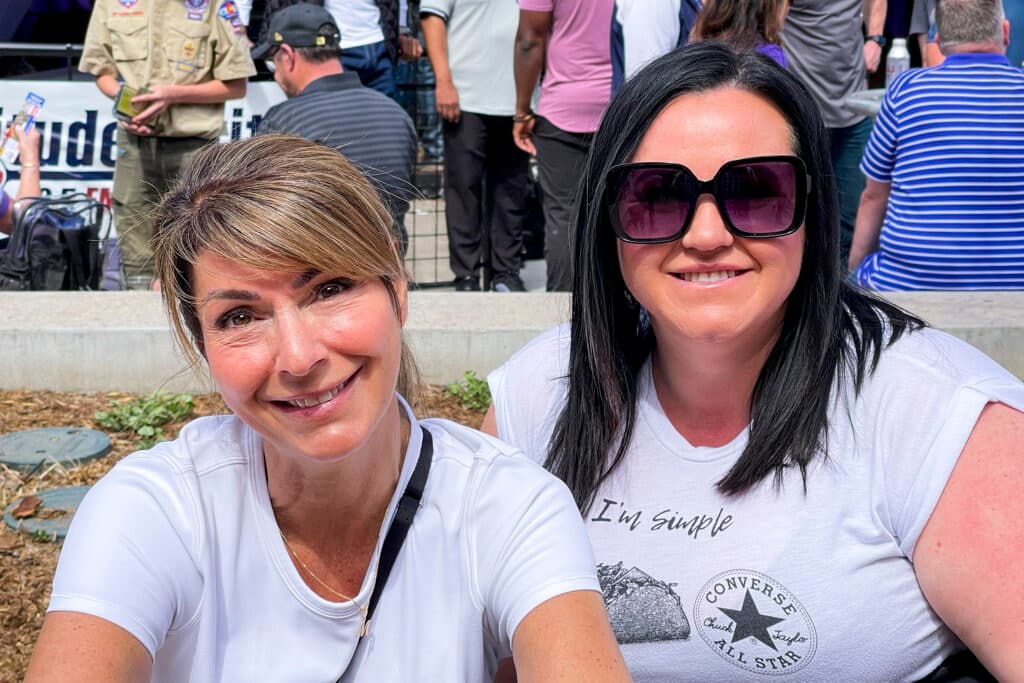
As they saw it, Denver was walkable. Transportation from Denver International Airport was easy. There was plenty to do without needing a car.
The streets were clean. Infrastructure worked. Things felt safe.
Even better, said Baker: “Your homeless issue isn't quite as bad as some of ours.”
Matt Van Sistine, chair of the board of the neighborhood group the Ballpark Collective, says optimism has spread through the neighborhood.
“The reality is there's a lot of resilient, stubborn, fun, cool, small businesses,” he said. “There’s a lot of doers and makers and award-winning restaurants and premium Italian wines being made, and great stories and great restaurants.”
Many people from the suburbs say they have great restaurants and small businesses where they live, and there’s no real reason to come to Denver for all that. There's too much traffic. Even if crime is ebbing, Denver doesn't feel safe.
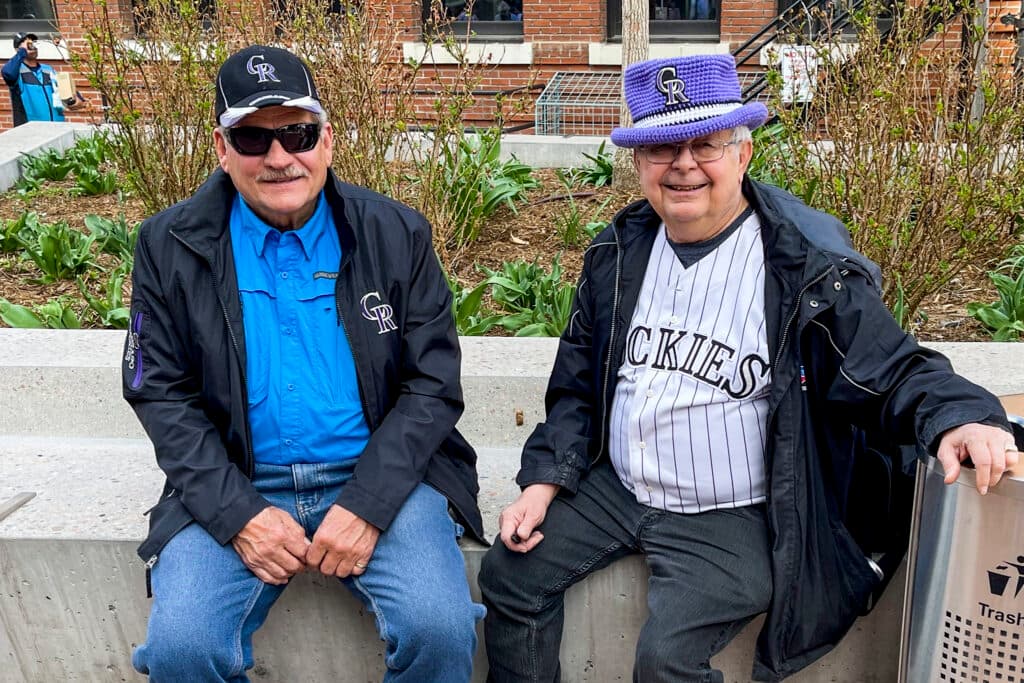
But a rebound is in the works, Van Sistine said, and people should come to experience it for themselves.
“It's easy to highlight the problems, and it's great for clickbait and a quick story, but the reality is, there's people down here that — crazy like me — live, work, have businesses. That story often doesn’t get out, because it’s so much easier to sell a negative story.”
“At nighttime, it's a little sketch down here,” said McIntyre. “So we tend to not come this far, very often. You don't want to be out here it at last call and let out, when people are getting in fights and shot.”
In their 20s, Emily Erickson of Aurora and Jessica McIntyre of Littleton used to party downtown, but not anymore.
Also, they've aged out. Downtown feels like it’s largely for the younger bar crowd. There’s not much they want to do — other than sports.
Among friends, safety is a concern, but so is the cost, Erickson said.
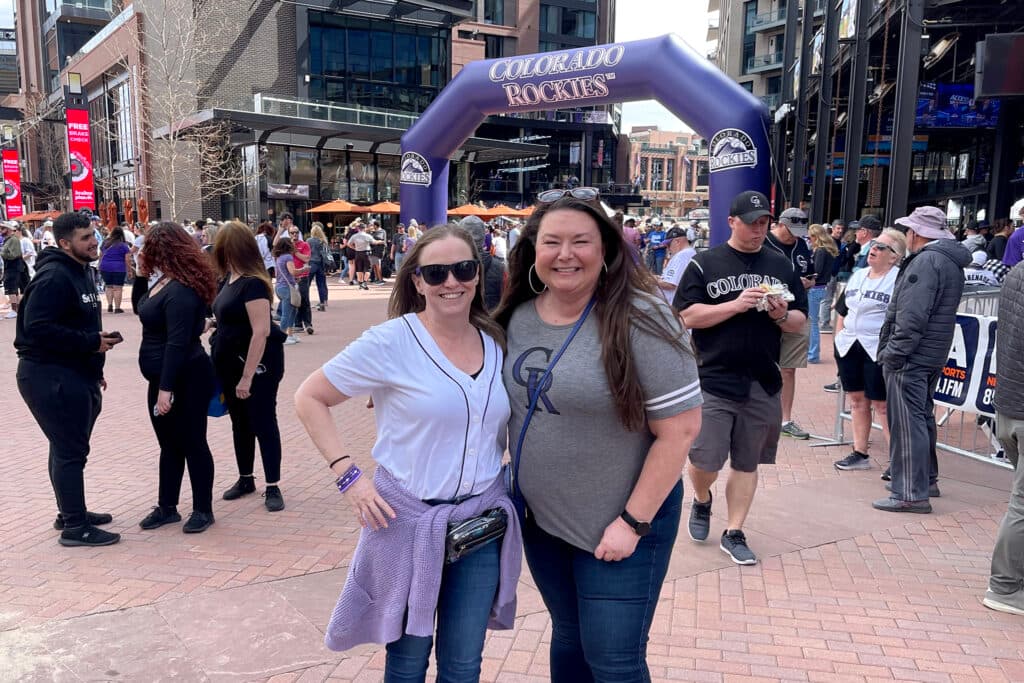
Ubers to the suburbs are expensive. So are drinks. A night downtown can cost them hundreds of dollars. If they want to splurge, they have to save.
Logistics also keep a lot of their friends away.
Before planning a trip, people they know ask: “Is there going to be parking? How far will we have to walk? What's the weather going to look like?”
Denver's biggest issues — affordability, homelessness, addiction — are familiar to MacDonald, the pedicab driver from Aspen.
He moved to Colorado six years ago to kick his meth habit. When he arrived, he lived under a bridge next to Clear Creek in Golden.
He took a job and earned $200 a month more than he needed to qualify for food stamps.
But he worked hard, got sober, and moved to the mountains where he lives with his wife and daughter. He rents an apartment he can afford at his college, where he studies criminal justice. He’s now interviewing to be a police officer in a mountain town.
Meanwhile, pedicabbing tourists in Aspen — and now at Opening Day — is one of several ways he pays the bills.
“It's easier than hustling on the streets as a homeless person,” he said.
He wishes more people would get clean and find stability. While he’s grateful for Colorado’s mental health and addiction resources, the issues people are facing in Denver have no easy solution.
Politicians can't just wave a wand and make things better, as he sees it, and people need to want to make their own lives better.
“There's just a lot of violence, a lot of aggression,” he said. “That probably also comes with individuals moving to Colorado, there not being enough room, and then there being too high of a price tag on places to live.”

